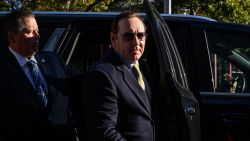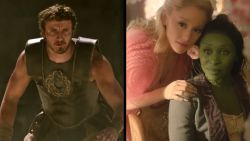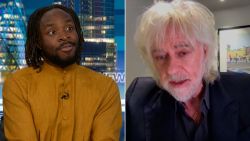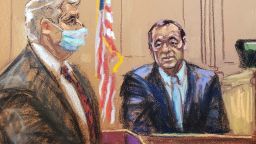In a victory for Kevin Spacey, a New York jury on Thursday afternoon found him not liable for battery on allegations he picked up actor Anthony Rapp and briefly laid on top of him in a bed after a party in 1986.
Jurors deliberated for about an hour, and concluded Rapp did not prove Spacey “touched a sexual or intimate part” of Rapp.
Judge Lewis Kaplan formally dismissed the case. Attorneys seated on either side of Spacey immediately put their hands on his back when the verdict was read.
“We are very grateful to the jury for seeing through these false allegations,” Jennifer Keller, one of Spacey’s attorneys, said later while leaving court. Spacey did not speak to reporters when he left.
Best known for his role in “Star Trek: Discovery,” Rapp had alleged that in 1986, Spacey, then 26, invited Rapp, then 14, to his Manhattan home where he picked Rapp up, laid him down on his bed, grabbed his buttocks and pressed his groin into Rapp’s body without his consent.
The judge dismissed Rapp’s claim of assault before the trial started and dismissed his claim of intentional infliction of emotional distress after Rapp’s attorneys rested his case, leaving the jury to decide only the battery claim. Under New York law, battery is touching another person, without their consent, in a way that a reasonable person would find offensive.
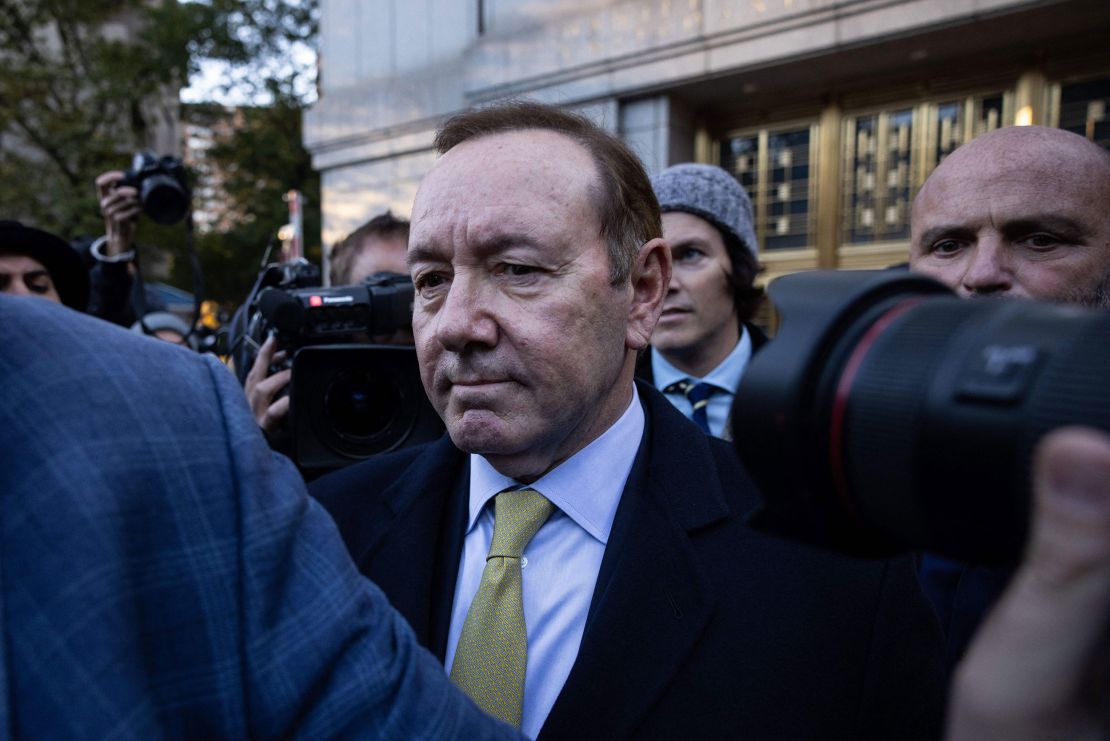
Rapp said Friday in a statement released on Twitter that bringing his lawsuit against Kevin Spacey “was always about shining a light, as part of the larger movement to stand up against all forms of sexual violence.”
“I am deeply grateful for the opportunity to have my case heard before a jury, and I thank the members of the jury for their service,” Rapp said in the statement.
“I pledge to keep on advocating for efforts to ensure that we can live and work in a world that is free from sexual violence of any kind,” he added. “I sincerely hope that survivors continue to tell their stories and fight for accountability.”
A big win, but Spacey still faces other accusers
CNN Legal Analyst Joey Jackson saw Thursday’s verdict as a huge win for Spacey, one that demonstrates a jury can tune out the noise involving a celebrity’s alleged reported misdeeds in the Me Too movement and evaluate a case based on the facts presented in court.
The case was also problematic legally, with two counts tossed by the court – assault and intentional infliction of emotional distress – leaving the jury to consider only the battery claim, Jackson said.
“The jury clearly did not accept factual assertions made by Rapp, thereby not finding him credible,” Jackson added.
But the win was a “Pyrrhic victory” for Spacey given other charges that “hang over him, including criminal charges in the UK,” CNN Legal Analyst Paul Callan said.
“Spacey has now notched two victories in sex abuse charges against him including this case and the one previously dropped in Nantucket,” Callan said. “He, however, faces an uphill battle facing other accusers and more serious criminal charges in UK.”
Spacey was charged with four counts of sexual assault against three men and one count of causing a person to engage in penetrative sexual activity without consent by Britain’s Crown Prosecuting Service in May. Spacey has pleaded not guilty to the charges.
In the Nantucket case, a man alleged Spacey groped him when he was an 18-year-old busboy at a restaurant. Spacey had pleaded not guilty. Prosecutors eventually dropped the criminal case against Spacey after the accuser pleaded the Fifth on the witness stand when being questioned about his missing cellphone and about whether he deleted text messages.
What attorneys said in closing arguments
In his closing argument, Rapp’s attorney Richard Steigman suggested Spacey twisted his testimony at trial to suit his defense, pointing to Spacey’s 2017 apology to Rapp when he first came forward.
“Don’t listen to what I said in real time. I’m defending a lawsuit now. Listen to me now. I’ve got it straightened out,” Steigman said, mocking Spacey’s attempt to convince the jury he was coerced by publicists to give the statement he testified he now regrets.
Steigman called Spacey’s testimony rehearsed in comparison to the raw testimony given by his client.
“When you’re rehearsed, and a world-class actor and you’re following the script and following the testimony of someone else, you can take that stand and be perfectly polished,” Steigman said. “When you’re merely coming to court coming forward and telling the truth of your experience, especially one like this that’s a little bit complicated.”
Steigman also batted down the defense argument that Rapp wanted to out Spacey as gay.
“The point of the story is not that Kevin Spacey is gay. It’s that he sexually abused him when he was 14. That’s what he’s sharing with people, he’s sharing his experience - nothing more, nothing less. Where’s the proof that he said to any media outlet, you know, Kevin Spacey is gay, you really should run with this?”
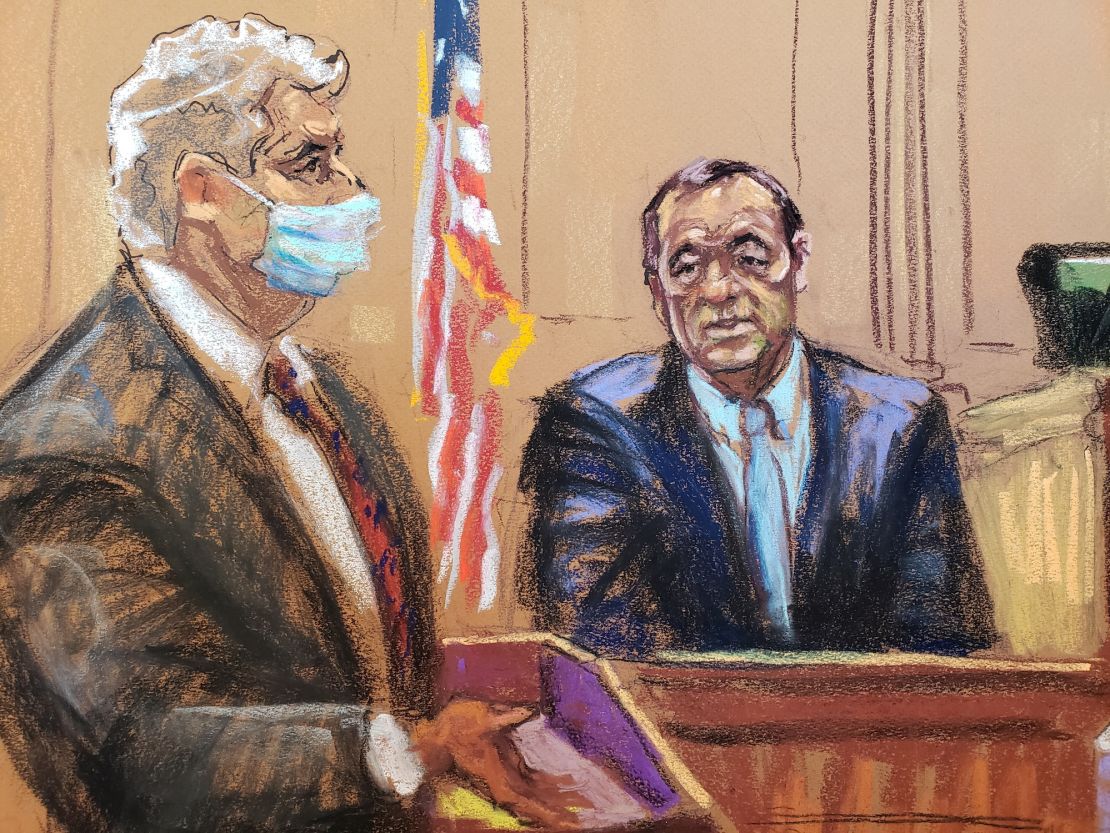
Keller, Spacey’s attorney, began her closing argument by addressing the shadow of the Me Too movement on the case, stating that Rapp “hitched his wagon” to the movement when he came forward.
“This isn’t a team sport where you’re either on the Me Too side, or you’re on the other side,” Keller told the jury. “This is a very different place. Our system requires evidence, proof, objective support for accusations provided to an impartial jury. However polarized as society may be today, it really should not have a place here.”
Keller suggested that Rapp cribbed his allegations against Spacey from a nearly identical scene from the Broadway show “Precious Sons,” which Rapp was performing in with Ed Harris in 1986 at the time of the alleged incident.
“We’re here because Mr. Rapp has falsely alleged abuse that never occurred at a party that was never held in a room that did not exist,” she said.
Spacey’s attorney concluded her remarks by asking the jury not to compromise their verdict by finding Spacey liable of battery but only awarding Rapp a single dollar in damages.
“You’re here to be judges of the facts. Did it happen? It didn’t happen. One penny is too much for something that did not happen,” Keller said.
CNN’s Sonia Moghe contributed to this story.

